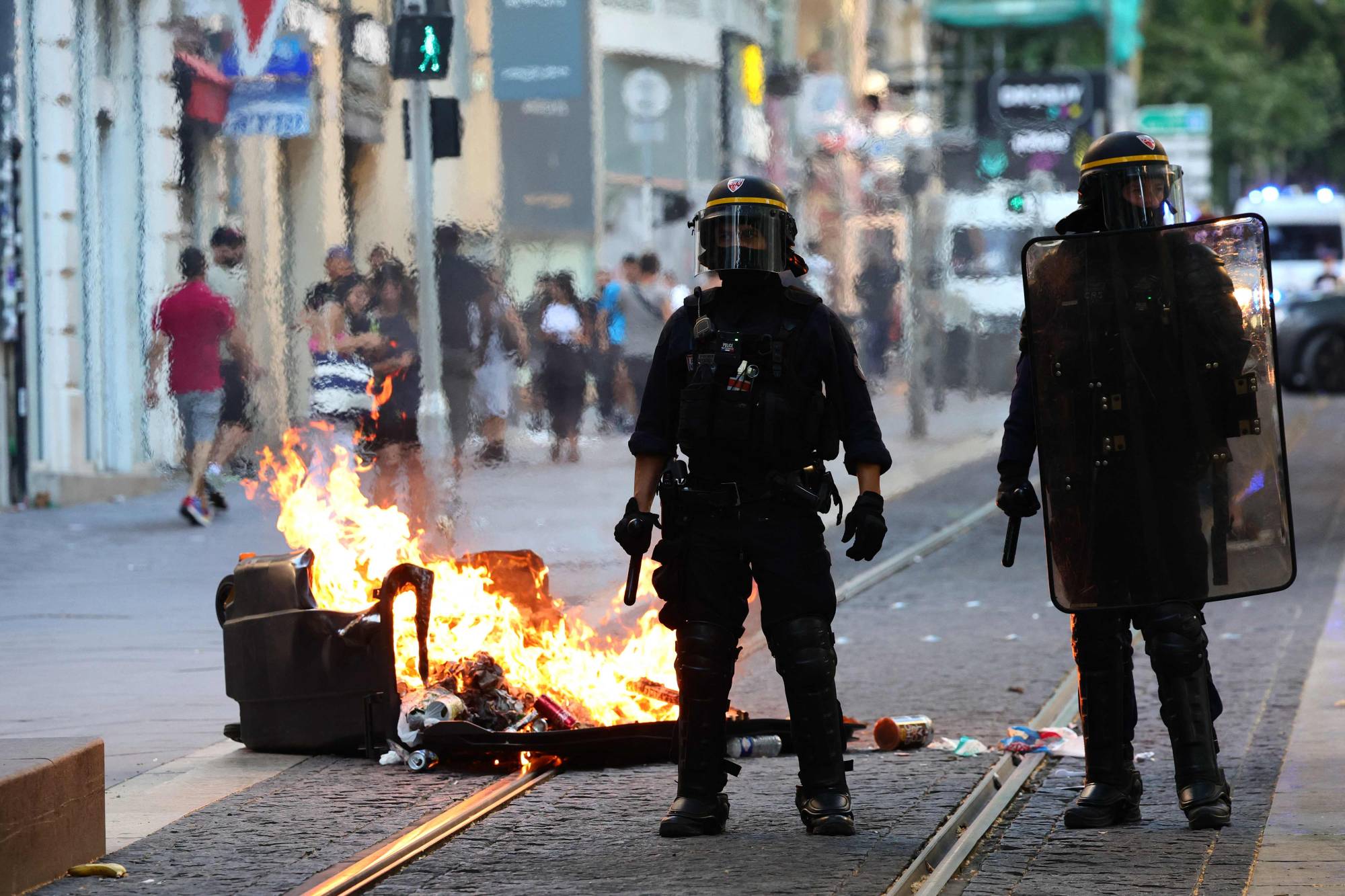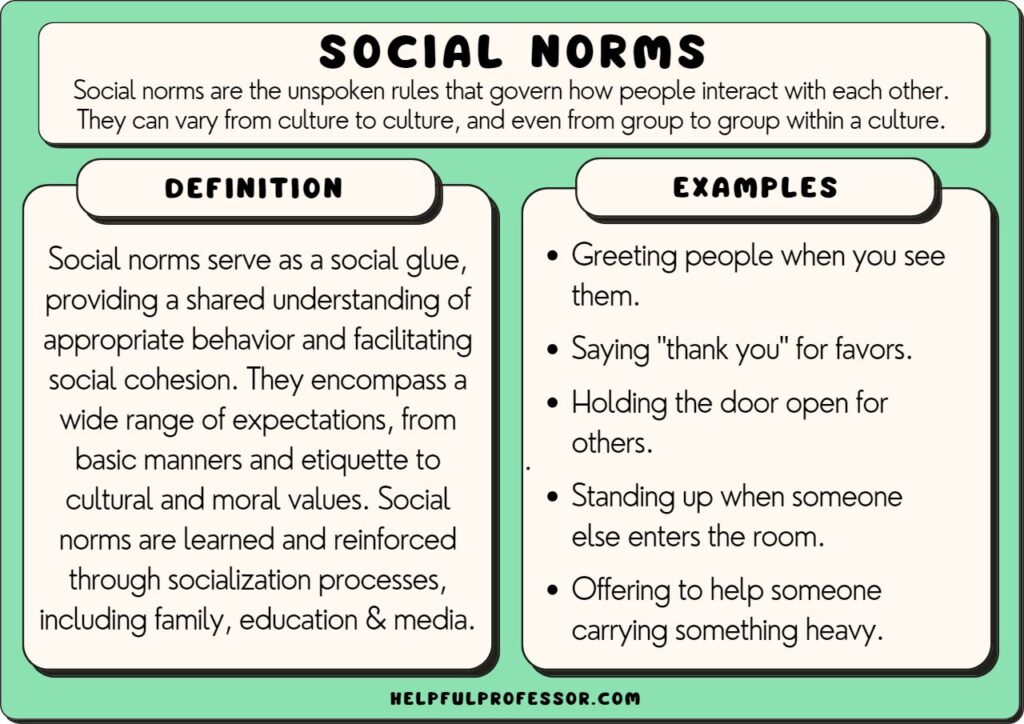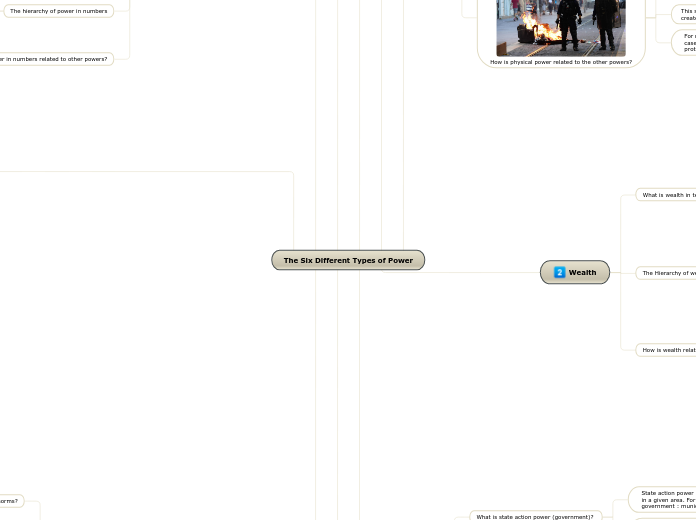The Six Different Types of Power
Other
Power is not static
Power is not static, rather one side will have less/more of it, if you are not acting upon it, you will be acted upon. Power will vary from individual to individual or from state power. One group will never have the same power, rather power that will increase or decrease based on external factors/powers. In the civic area, power is more stable as there can be a leader such as a president/prime minister for 4 years, however in a democracy, the people decide that.
Physical Force
What is physical force?
Physical Force in power refers to the using brute force such as violence to create a sense of power.
Example - George Floyd event which spiralled to the BLM movement.
The military, the police, or militia
The hierarchy of Physical Power

How is physical power related to the other powers?
This consequence of physical power creates power in numbers.
This show of physical force from the police consequently created the riots and protests associated with the BLM.
For many instances where physical force is used, usually the case where police is involved in a large scale is riots and protests.
Wealth
What is wealth in terms of power?
For example, one of the largest issues with wealth is the gap between the poor and the rich.
Money can be used to control almost anything, and can create problems and solutions anywhere.
Wealth refers to the money, capital, and investment power an entity has.
The Hierarchy of wealth
Wealth has the most power in the modern society.
Everything can be purchased and money has control in everything. Governments use PPP and GDP to determine their standing
The economy of certain countries or the global economy determines the wealth many individuals have
How is wealth related to other powers?
Wealth can influence state action powers.
For example, a corrupted government system in Africa effects the economy in certain countries
Same is said for vise versa, where the government is corrupted by money.
State Action
What is state action power (government)?
State action power refers to the political/governmental power in a given area. For example, Canada has 3 types of government : municipal, provincial, and federal.
For example, Canada has 3 types of government : municipal, provincial, and federal. Each part of the government is represented by an MP which is elected by their respective community
The hierarchy of state action
State action is one of the highest powers, second or third to wealth.
State action determines the government and its laws in a governed nation
The power is either controlled by the people in the democracy or is controlled through the government (forced) through a dictatorship
State action can create more laws, and use a dictatorship or democracy to make the decisions for the people
How is wealth related to other powers?

State action, especially democracy is related to power in numbers
Since the people vote in a democratic system, the influence in the community or the people (strength in numbers) has a strong influence on state action.
Power compounds
Power is always compounding. The rich use their wealth and become wealthier. The poor will stay poor because of the power they lack. The same applies for other powers, such as power in numbers or power in ideas. The number of people influenced can be exponential, as word of mouth is a key component in spreading information.
Power In Numbers
What is Power In Numbers?
Power in numbers describes how power is achieved when there are many people influencing, supporting or doing an action
For example, power in numbers is very general and could mean the mass of people for gatherings, protests, wars, financial and so it fits under every power

An older example of power is the battle of 300 Spartans (battle of Thermopylae) against the Persians. Although the Spartans had an impenetrable defence, they lost due to their lack of numbers.
The hierarchy of power in numbers
The hierarchy of power in numbers would the second most influential power because of its significance
Most power based actions rely on the support of individuals, such as creating wealth, gathering support for protests, and creating new social norms and laws
How is ideas power in numbers related to other powers?
In the other powers, we can see that people influence most of the powers. Power in numbers serves as the base for all actions and how effective they are.
Ideas
what are Ideas?
An idea is a thought that can generate boundless amounts of power. If it motivates enough people, it can change the world
For example, the iPhone revolutionized the cell phone market as it was the first touch screen cellphone. It created its own power and economy.
The hierarchy of Ideas
Ideas have the 3rd most power in the hierarchy.
Ideas have an exponential level of growth and potential, however ideas have the chance to fail in any given circumstance
Ideas also depend on other factors such as if it realistic, achievable, and can inspire other individuals.
How is ideas related to other powers?
Ideas also depend on other factors such as if it realistic, achievable, and can inspire other individuals.
Social Norms
what are social norms?

Social Norms define societies ideologies and thoughts, spread from peer to peer that are unwritten rules.
An example of social norms is the how same gender marriage is becoming more accepted.
The hierarchy of Social Norms
Social Norms are quite important in today society, however, less important than government.
Social Norms can define what is "right" and "wrong" in a society and is constantly changing.
How is Social Norms related to other powers?
Social Norms can define what the people think about certain laws, therefore changing the laws in a democratic society.
When something is not socially acceptable, people may start protests and riots to fix it because they may not see it as right.
Power is flowing like water
Power is connected through every action that is present in society. Power will flow through different places and different sectors. For example, state action power has the ability to control the power flow with policy that cannot be controlled freely.
